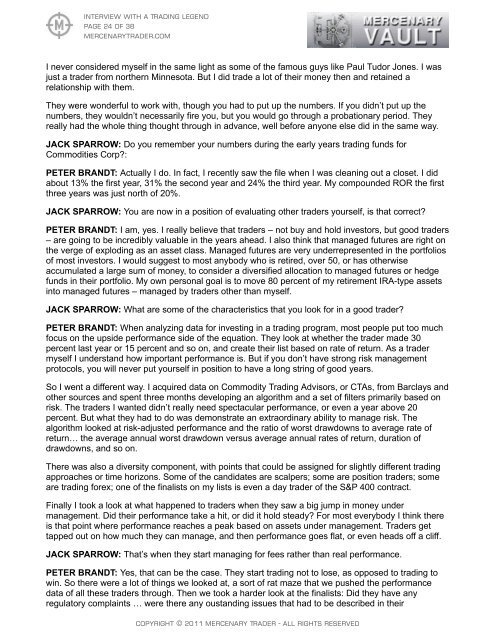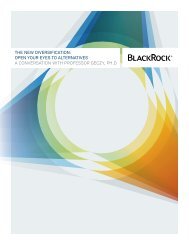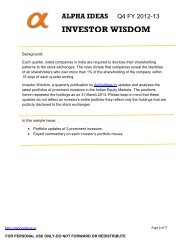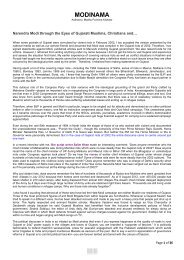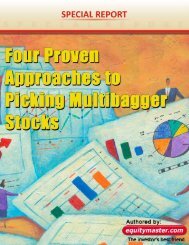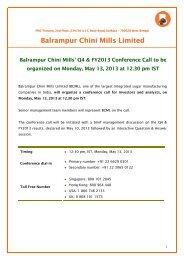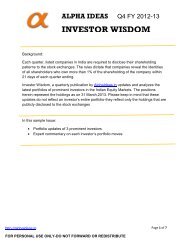Interview With a Trading Legend - Mercenary Trader
Interview With a Trading Legend - Mercenary Trader
Interview With a Trading Legend - Mercenary Trader
You also want an ePaper? Increase the reach of your titles
YUMPU automatically turns print PDFs into web optimized ePapers that Google loves.
<strong>Interview</strong> <strong>With</strong> a <strong>Trading</strong> <strong>Legend</strong><br />
Page 24 of 38<br />
mercenarytrader.com<br />
I never considered myself in the same light as some of the famous guys like Paul Tudor Jones. I was<br />
just a trader from northern Minnesota. But I did trade a lot of their money then and retained a<br />
relationship with them.<br />
They were wonderful to work with, though you had to put up the numbers. If you didn’t put up the<br />
numbers, they wouldn’t necessarily fire you, but you would go through a probationary period. They<br />
really had the whole thing thought through in advance, well before anyone else did in the same way.<br />
JACK SPARROW: Do you remember your numbers during the early years trading funds for<br />
Commodities Corp?:<br />
PETER BRANDT: Actually I do. In fact, I recently saw the file when I was cleaning out a closet. I did<br />
about 13% the first year, 31% the second year and 24% the third year. My compounded ROR the first<br />
three years was just north of 20%.<br />
JACK SPARROW: You are now in a position of evaluating other traders yourself, is that correct?<br />
PETER BRANDT: I am, yes. I really believe that traders – not buy and hold investors, but good traders<br />
– are going to be incredibly valuable in the years ahead. I also think that managed futures are right on<br />
the verge of exploding as an asset class. Managed futures are very underrepresented in the portfolios<br />
of most investors. I would suggest to most anybody who is retired, over 50, or has otherwise<br />
accumulated a large sum of money, to consider a diversified allocation to managed futures or hedge<br />
funds in their portfolio. My own personal goal is to move 80 percent of my retirement IRA-type assets<br />
into managed futures – managed by traders other than myself.<br />
JACK SPARROW: What are some of the characteristics that you look for in a good trader?<br />
PETER BRANDT: When analyzing data for investing in a trading program, most people put too much<br />
focus on the upside performance side of the equation. They look at whether the trader made 30<br />
percent last year or 15 percent and so on, and create their list based on rate of return. As a trader<br />
myself I understand how important performance is. But if you don’t have strong risk management<br />
protocols, you will never put yourself in position to have a long string of good years.<br />
So I went a different way. I acquired data on Commodity <strong>Trading</strong> Advisors, or CTAs, from Barclays and<br />
other sources and spent three months developing an algorithm and a set of filters primarily based on<br />
risk. The traders I wanted didn’t really need spectacular performance, or even a year above 20<br />
percent. But what they had to do was demonstrate an extraordinary ability to manage risk. The<br />
algorithm looked at risk-adjusted performance and the ratio of worst drawdowns to average rate of<br />
return… the average annual worst drawdown versus average annual rates of return, duration of<br />
drawdowns, and so on.<br />
There was also a diversity component, with points that could be assigned for slightly different trading<br />
approaches or time horizons. Some of the candidates are scalpers; some are position traders; some<br />
are trading forex; one of the finalists on my lists is even a day trader of the S&P 400 contract.<br />
Finally I took a look at what happened to traders when they saw a big jump in money under<br />
management. Did their performance take a hit, or did it hold steady? For most everybody I think there<br />
is that point where performance reaches a peak based on assets under management. <strong>Trader</strong>s get<br />
tapped out on how much they can manage, and then performance goes flat, or even heads off a cliff.<br />
JACK SPARROW: That’s when they start managing for fees rather than real performance.<br />
PETER BRANDT: Yes, that can be the case. They start trading not to lose, as opposed to trading to<br />
win. So there were a lot of things we looked at, a sort of rat maze that we pushed the performance<br />
data of all these traders through. Then we took a harder look at the finalists: Did they have any<br />
regulatory complaints … were there any oustanding issues that had to be described in their<br />
Copyright © 2011 <strong>Mercenary</strong> <strong>Trader</strong> - All Rights Reserved


